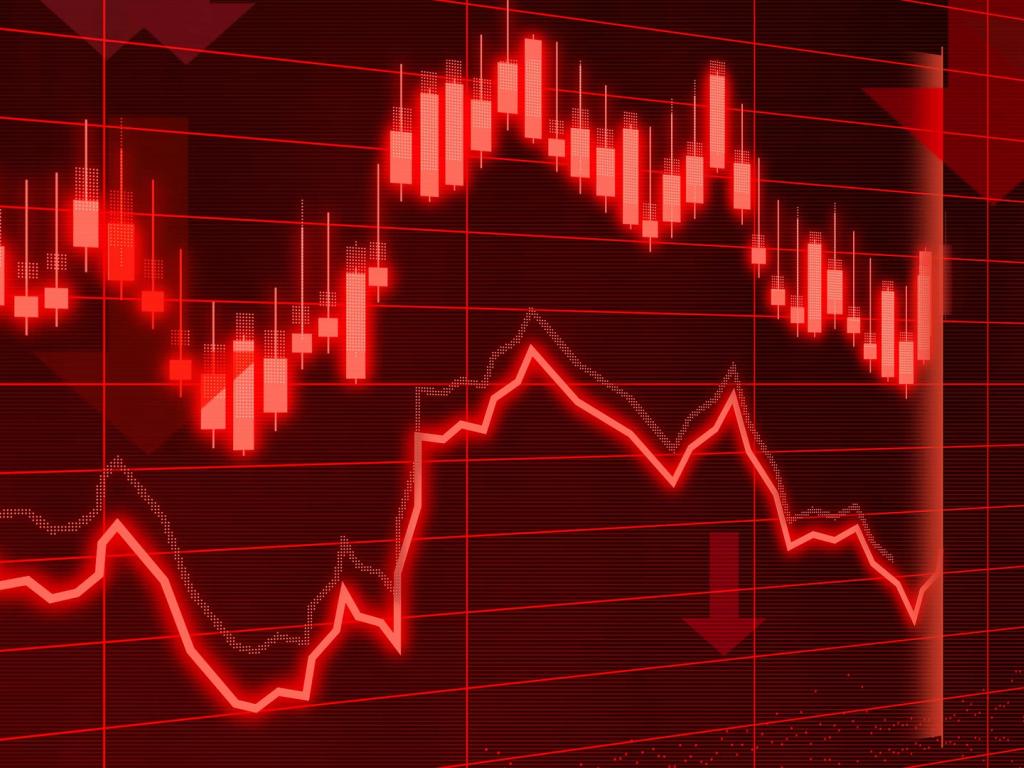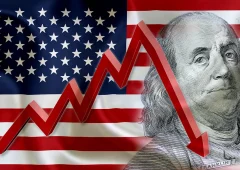Billionaire Warns of Economic Downturn and Dollar Weakness
30.08.2024 18:30 2 min. read Alexander Stefanov
Billionaire investor Ray Dalio has recently raised concerns about a potential economic downturn over the next four years and its impact on the U.S. dollar.
Dalio, founder of Bridgewater Associates, pointed to Japan’s experience as a cautionary tale. He noted that Japan’s currency weakened significantly due to extensive money printing, leading to an 80% loss in purchasing power for its citizens. He warns that a similar fate could befall the U.S. if current economic policies continue.
Dalio predicts that increasing debt servicing costs in the U.S. could restrict consumer spending and widen the gap between fixed debt repayments and actual revenue. This, in turn, could put downward pressure on the U.S. dollar.
He emphasizes that a significant red flag would be a large-scale sell-off of U.S. bonds by investors. Such a move would likely prompt intervention from the Federal Reserve and other central banks. Dalio believes the most critical period for these issues could arise during the next economic downturn, which he expects within the next four years.
Additionally, recent U.S. spending forecasts highlight growing financial concerns. The federal government’s expenditure is projected to reach $6.8 trillion in 2024, the highest since 2021, potentially further straining the U.S. dollar and increasing the budget deficit. Interest payments and debt-related expenditures are expected to total nearly $1.8 trillion, while projected revenues of $4.7 trillion will result in a $1.9 trillion budget deficit, the largest in three years.
-
1
Russia’s Oil Revenues Strained as Exports Decline Again
24.06.2025 18:00 2 min. read -
2
Recession Fears Linger as Economic Signal Flashes Long-Term Warning
25.06.2025 9:00 2 min. read -
3
Robert Kiyosaki Predicts When The Price of Silver Will Explode
28.06.2025 16:30 2 min. read -
4
Trump Targets Powell as Fed Holds Rates: Who Could Replace Him?
27.06.2025 9:00 2 min. read -
5
U.S. PCE Inflation Rises for First Time Since February, Fed Rate Cut Likely Delayed
27.06.2025 18:00 1 min. read
Key U.S. Economic Events to Watch Next Week
After a week of record-setting gains in U.S. markets, investors are shifting focus to a quieter yet crucial stretch of macroeconomic developments.
Robert Kiyosaki Predicts When The Price of Silver Will Explode
Robert Kiyosaki, author of Rich Dad Poor Dad, has issued a bold prediction on silver, calling it the “best asymmetric buy” currently available.
U.S. PCE Inflation Rises for First Time Since February, Fed Rate Cut Likely Delayed
Fresh data on Personal Consumption Expenditures (PCE) — the Federal Reserve’s preferred inflation gauge — shows inflation ticked higher in May, potentially delaying the long-awaited Fed rate cut into September or later.
Trump Targets Powell as Fed Holds Rates: Who Could Replace Him?
Federal Reserve Chair Jerome Powell is once again under fire, this time facing renewed criticism from Donald Trump over the Fed’s decision to hold interest rates steady in June.
-
1
Russia’s Oil Revenues Strained as Exports Decline Again
24.06.2025 18:00 2 min. read -
2
Recession Fears Linger as Economic Signal Flashes Long-Term Warning
25.06.2025 9:00 2 min. read -
3
Robert Kiyosaki Predicts When The Price of Silver Will Explode
28.06.2025 16:30 2 min. read -
4
Trump Targets Powell as Fed Holds Rates: Who Could Replace Him?
27.06.2025 9:00 2 min. read -
5
U.S. PCE Inflation Rises for First Time Since February, Fed Rate Cut Likely Delayed
27.06.2025 18:00 1 min. read


